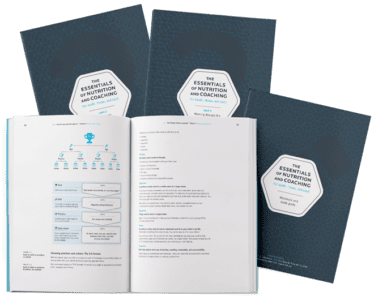Chapter 4
The 6 biggest benefits of intermittent fasting
The potential benefits of intermittent fasting are wide-ranging, from slowed aging to weight loss to disease protection. But there’s an important caveat to understand: If you fast too much or too intensely, the positives diminish.
Key concepts
- Intermittent fasting might improve certain health problems, particularly metabolic conditions such as blood glucose problems, high blood lipids (cholesterol and triglycerides), and inflammation.
- Fasting isn’t magical. Though it can be helpful, fasting isn’t necessarily better than other methods, like conventional caloric restriction.
- There are some people who shouldn’t fast. In this chapter, we’ll explain who and why.
The list of potential health benefits of intermittent fasting? It’s super long.
According to a wide range of studies, intermittent fasting (IF) might alleviate or prevent a number of health conditions, including cancer, type 2 diabetes, and heart disease.
It could help people lose fat.
And it may even boost brain health.
That may make IF seem like a one-size-fits-all cure-all, which is why we’d like to start this chapter by pointing out two huge caveats.
Caveat #1: Intermittent fasting can only boost health so much.
It’s not a linear relationship. If you fast longer and harder, you won’t keep feeling better and better until you’re immortal.
But, if you have room to improve, you’ll probably notice some changes. On the other hand, if you’re already doing well, you might not do that much better, possibly because your metabolic and other health markers are already pretty good.
Caveat #2: Many of the benefits depend on fasting being intermittent.
Consistently restricting energy or nutrients for a long time can actually reverse many IF benefits.
Those caveats out of the way, let’s look at the potential benefits of IF.
Benefit #1: Intermittent fasting might slow aging.
None of us can escape aging.
But we can age more slowly, and fasting may be a way to do that.
Fasting seems to slow cellular senescence.
What the heck does cellular senescence mean, exactly—and why should you care?
Senescence is a big word that refers to the condition or process of deterioration. When we’re talking about the senescence of a cell, we mean a cell has aged to the point where it can’t divide and regenerate.
When our cells senesce:
- They stop growing and repairing.
- They resist an honorable and beneficial death (called apoptosis).
- They release pro-inflammatory, tissue-destroying chemicals.
- They increase protein synthesis (the formation of proteins) and glycolysis (the breakdown of glucose).
- The ends of their chromosomes—called telomeres—shorten, and they show genetic damage.
Now, to some degree, senescent cells come in handy. For example, they might help suppress tumors or improve our immunity.
But as we age and senescent cells accumulate, they start causing problems such as inflammation, chronic diseases, metabolic dysfunction, poor recovery, and most of the unpleasant physical things we associate with “getting old.”
Senescence is inevitable, but malleable. That means we can speed it up, or slow it down.
We can speed it up with things like:
- environmental toxins
- DNA damage
- free radicals
- chronic and intense stress (which is another reason to focus on the “intermittent” aspect of IF)
- some drugs
We might be able to slow it down with IF.1
To understand why, we need to define a few more key terms.
Let’s start with apoptosis, or programmed cell suicide. Apoptosis is a crucial part of keeping us healthy, especially as we age.
Other, less drastic forms of cell clean up include:
- Autophagy: Cells clean up damaged or dysfunctional cellular material and recycle it.
- Mitophagy: Mitochondrial dysfunction triggers self-digestion.
Interestingly, senescent cells resist these natural cleanup processes. They keep hanging onto life, even though they’re no longer helpful.
Fasting and energy restriction both increase apoptosis, autophagy, and mitophagy.
The potential benefits could show up as decreased inflammation and/or improved longevity.
Fasting may improve cellular signaling.
Our cells’ health and longevity depend on clear and correct chemical communication. When this breaks down, so do our cells.
Some of the key signaling pathways that IF potentially affects are:
- AMP-activated protein kinase (AMPK) signaling: AMPK is an energy sensor that coordinates a large, integrated signaling network that regulates health and longevity. AMPK responds to both low oxygen (hypoxia) and low energy. Activating AMPK (for instance, through fasting) seems to improve lifespan as well as overall health.
- Antioxidant signaling: Cellular oxidation is a natural part of metabolism, and it’s often likened to rusting. Our bodies have their own antioxidant systems to clear the rust, but they slow and break down with age. Fasting may increase the expression of important genes in the antioxidant system and help with overall improved cell signaling.
- Insulin/insulin-like growth factor-1 (IGF-1) pathway: Insulin and IGF-1 are important for normal growth and anabolism (a crucial factor in muscle gain) throughout the body. But, if these hormones are too high for too long, we have a greater risk of diseases related to growth, such as cancer. Downregulating this pathway (or decreasing its activity), as happens in IF, seems to extend lifespan.
Benefit #2: Intermittent fasting might improve brain health.
IF may slow cognitive decline—perhaps by:
- Reducing inflammation
- Helping to control glucose and insulin
- Slowing processes of brain cell aging
- Stimulating neuroplasticity (the brain’s ability to form new synaptic connections)
- Preserving neurons
IF also shows promise in treating brain diseases and damage, such as after a stroke or concussion. But not all of the research is positive.2,3
Additionally, some people report brain fog while fasting, so cognitive performance may not improve during the fasting periods themselves. More research is needed to sort it all out.
Benefit #3: Intermittent fasting might reduce risk of type 2 diabetes.
As we have much less circulating glucose during fasting, our insulin sensitivity (how receptive our cells are to the action of insulin) and glucose control may improve. (For more about this process, see Carbs, insulin, and weight loss.)
A small case study showed exciting results in people with type 2 diabetes.4 Three people who’d had diabetes for 10 to 25 years fasted three to four times a week. On their fasting days, they consumed one meal (dinner), whereas on their non-fasting days they ate two (lunch and dinner). Within one to four weeks of this, they were able to stop using insulin completely.
However, not all studies show such dramatic results, especially large-scale ones.5
Depending on the fasting type or the health of people doing it, glucose regulation may be only moderately improved, or not at all.
Still, for most people who have problems with glucose regulation (aside from people with type 1 diabetes), IF may be one of the safer methods of improving blood sugar control. This is especially true if IF is combined with other healthy habits that can affect glucose regulation, like a high-quality diet, regular exercise, and getting enough sleep.
That said, if you have type 2 diabetes and are interested in IF, talk it over with your healthcare provider.
Benefit #4: Intermittent fasting might reduce risk of cancer.
Cancers are essentially unregulated, uncontrolled growth, and fasting might impede the development of cancers by:
- Dampening cellular growth.
- Cutting down the supply of nutrients and energy.
- Decreasing growth factors such as IGF-1.
- Increasing cellular repair and cleanup.
- Reducing the expression of some oncogenes (cancer genes).
- Increasing our response to cancer treatment drugs.
Caveat: Fasting alone has not been shown to prevent or cure cancer. But when combined with other approaches, it may help someone fend off disease.
In addition, weight cycling (aka yo-yo dieting) seems to increase cancer risk.6 This is another reason to attempt IF carefully and moderately, avoiding major ups and downs in body weight and food intake.
Benefit #5: Intermittent fasting might improve heart health.
IF may protect the heart in several different ways.
C-reactive protein may decline.
The serum level of C-reactive protein (CRP) is a marker of inflammation and risk factor for cardiovascular disease. Some research shows that CRP goes down when people fast.7,8
Cholesterol and lipid profiles may improve.
Generally, IF seems to improve our cholesterol and lipid profile by:
- Lowering total cholesterol, low-density lipoprotein (LDL, or “bad” cholesterol) and triglycerides.
- Increasing high-density lipoprotein (HDL, or “good” cholesterol).
The effect, however, seems to be tied to body weight. In people who are already healthy or lean, IF seems to offer little benefit.
Heart rate and blood pressure may decrease.
IF seems to lower resting heart rate and improve heart rate variability (HRV), a marker of stress. It also may lower blood pressure, possibly by activating the release of brain chemicals that turn on the calming parasympathetic “rest and digest” branch of our nervous system.9
Benefit #6: Intermittent fasting might increase fat loss
IF may help people lose fat more easily through several mechanisms. But the relationship between IF and fat loss is complex.
As a result, we’ll take a much deeper dive into this benefit in chapter 5.
Some people shouldn’t fast. We’d like to tell you about them.
There are people who really shouldn’t skip meals, fast for 24 hours, or dramatically restrict their calories, no matter how much it seems they could benefit from IF.
They include:
- People with health issues that necessitate regular meals.
- Anyone with a history of disordered eating. Fasting is essentially an eat/don’t eat experience, which is incredibly similar to the binge/restrict cycle.
- People who don’t deal all that well with hunger. For example, if they fast or eat less, they end up overeating later.
For these three categories of people, we recommend a gentler approach: only eating when hungry, which is a strategy we teach in our Precision Nutrition Coaching program. (We call it IF Lite.)
When people try it, they tell us they’re often not hungry even though it’s “mealtime” according to the clock. Rather than eat breakfast when they wake, for example, they might find that they have their first meal around 9:30 or 10am. Instead of noon, lunch might happen at 2pm.
Or they might skip it—and then eat some sort of lunch and dinner combo at 4.
The point isn’t that a 10am breakfast and a 4pm lunch/dinner is the perfect eating schedule for all people—because it’s not.
What we’re saying is this: The right time to eat varies from person to person, day to day, and meal to meal. By listening to their hunger cues, people can figure out the right time to eat—for them.
Before you start fasting, we’d like to mention a few more caveats.
IF shows a lot of promise, but the body of research is far from 100 percent conclusive.
Much of the research on IF has been done on animals. Animal data can be helpful and intriguing, but won’t tell us exactly what will happen to humans who try the same protocols.
Not all humans are the same. The studies that do look at humans don’t necessarily represent you as an individual. Will it help you? Only you can find out. (To learn how, see chapter 8.)
IF benefits may be a result of eating “less badly” or weight loss. Diets in industrialized countries are typically full of processed foods, low in nutrients, and high in energy/calories. If we compare study participants doing IF to people eating standard Western diets without fasting, we are actually stacking the deck in favor of IF.
Similarly, losing even a little bit of body fat can often improve our overall health and metabolic indicators. In many studies using IF, people tend to eat fewer calories overall, and thus, they lose fat. So, again, are the health benefits due to IF specifically, or to having less body fat? It’s not entirely clear.
Bottom line: There’s still a lot to learn about the benefits of IF.
That includes the relationship between IF and weight loss, which we explore in depth in the next chapter.
References
Click here to view the information sources referenced in this article.




